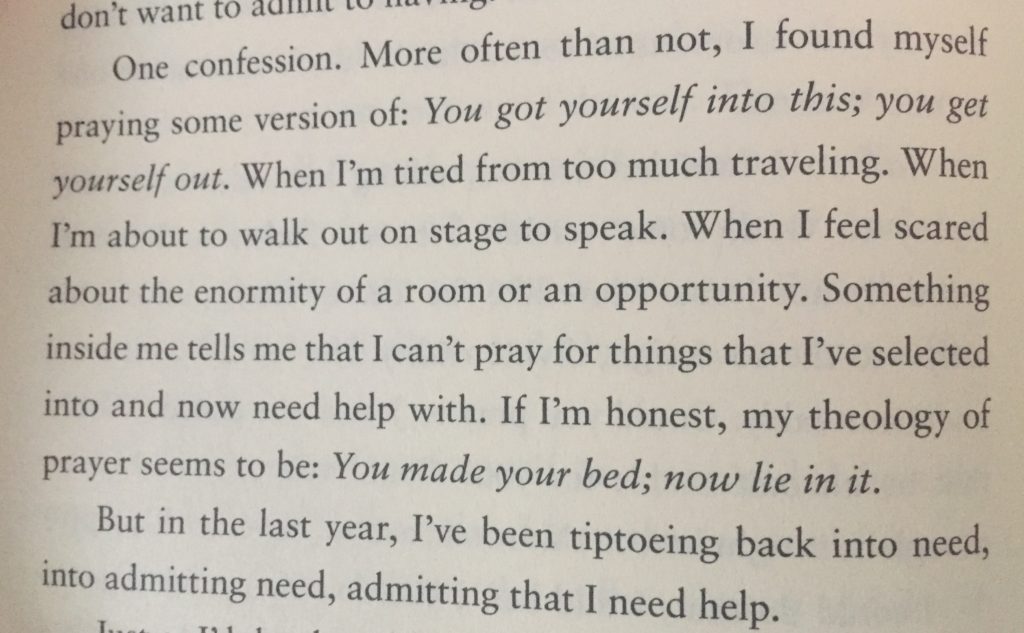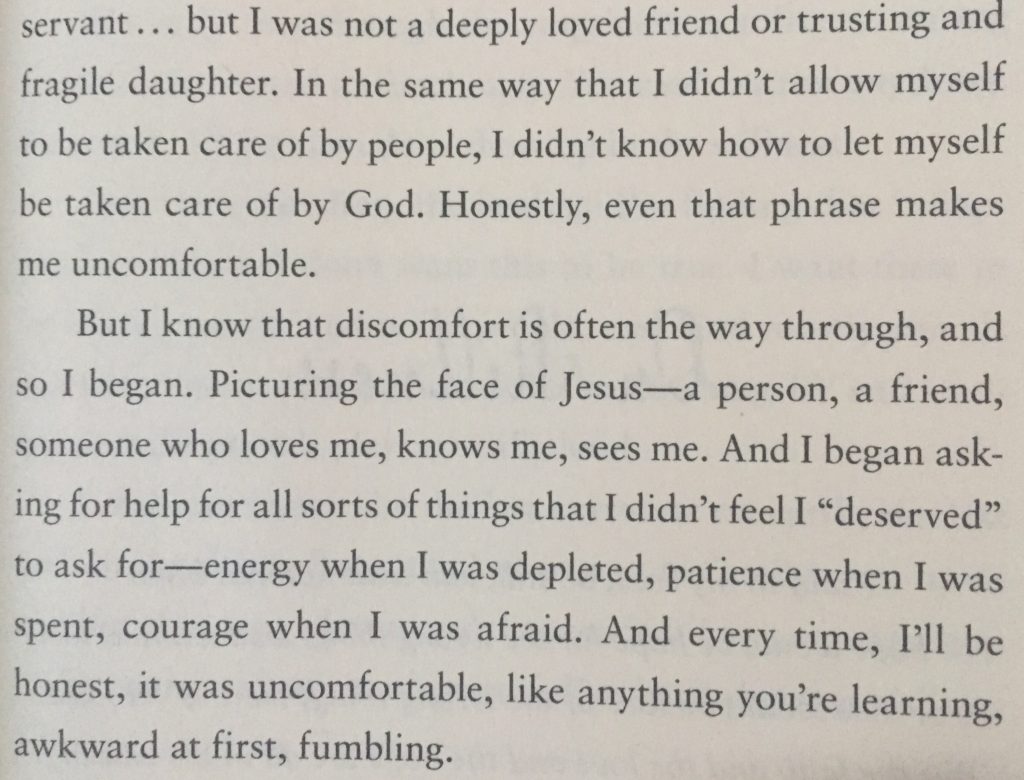
It was the second time in a week I’d misread her texts. GAH.
We’d been trying to go on a walk together, but if I wanted it to rain? I should just schedule a walk.
So as a hail mary, she’d suggested we go at 7:15. True story: The text said “tonight”. But because working from home this summer with kids was kind of like trying to work an actual magic trick every day (even when you’re just using smoke and mirrors)–my shriveled brain skipped over that helpful word.
It’s My Own Fault
The good news: Finally, she and I did get in that walk. But at the end, when we were talking about how we could pray for each other–she mentioned something about praying for me in my busyness.
I know I said it at least twice: “It’s my own fault.”
Even as I said it, I knew something was amiss. But like any good hustler, I neglected to examine it much further.
So I was more than a little convicted to read Shauna Niequist’s confession in Present over Perfect, which coincidentally, is definitely the book for me this summer.

My counselor once told me that if God brings something up to him two or three times, he tries to pay attention.
And sure enough, last night made the third time: My husband talked about his own version of the same thing. It was easier, he thought, to see God’s sovereignty in those instances beyond our control–like our son’s cancer scare this past winter.
But when it’s something we’ve decided, when our volition involved?
It’s not so easy.
If someone hits me in a car accident, I see it as God’s hand. But if I hit someone else, because of some stupid thing I could have done differently?
Feels like I should take the rap.
When we don’t know if we did the right thing
This has been niggling at me–or more accurately nibbling, like a rat at my heels–as we’ve returned from Africa and I’ve flailed about for some sense of identity or some confirmation that we did the right thing.
As I wrote you before, there was no writing on the wall. In fact, my husband and I were careful to not say God called us. That could indicate some form of God’s rubber stamp on what we were doing.
We sought his face and tried to make the wisest decision with all of the aching variables there. We trusted he’d give us the wisdom we begged for (James 1:5-6).
In the end, God granted us a pinch of what I would call clarity.
But I recall the words of Mother Teresa:
I have never had clarity; what I have always had is trust. So I will pray that you trust God.
(You might like this post on God’s Will–and the Clarity I Don’t Have–or this one on second-guessing decisions when you thought God was leading you somewhere.)
In the Middle of My Screw-Ups
So when things go pear-shaped and it just might be my fault? Sometimes I don’t know what to do.
(In my mind, if it’s God’s idea? I can cut all ties with responsibility for my adult choices. See this post: Did You Ask Me To? Then It’s Your Fault.)
But I remember Joseph’s words to that skittish group of brothers, who, y’know, sold him into slavery.
As for you, you meant evil against me, but God meant it for good, to bring it about that many people should be kept alive, as they are today. (Genesis 50:20)
I think of my kids, who I know will screw up. I aim to teach personal responsibility and strength.
Yet I also want them to pull away from the curb someday, car packed to the gills with dorm-room fixings, and their hearts just as crowded with gratitude for kindness after kindness they didn’t deserve.
I want them to accept my compassion.
When it comes to accepting God’s compassion? Sometimes this is the really hard part for me.
In the Royal Mess
And I think that all of Scripture points to people making a royal mess and God making something pretty darn beautiful. It’s the heart of Christianity: That I was not enough. I couldn’t get anywhere near worthiness or taking responsibility. And that in the person of Jesus, God was had tsunamis of kindness for me.
I thought of this when we took communion at church. There’s an agreement of his nourishment and abundance with my need. I have to take it into myself, this acceptance of his care.
Shauna, once more. The preceding sentence describes her life with God: “I was a good soldier, a responsible daughter, a trustworthy servant…”

All you wonderful, responsible people: This week, may you feel the kindness of God you didn’t deserve.







